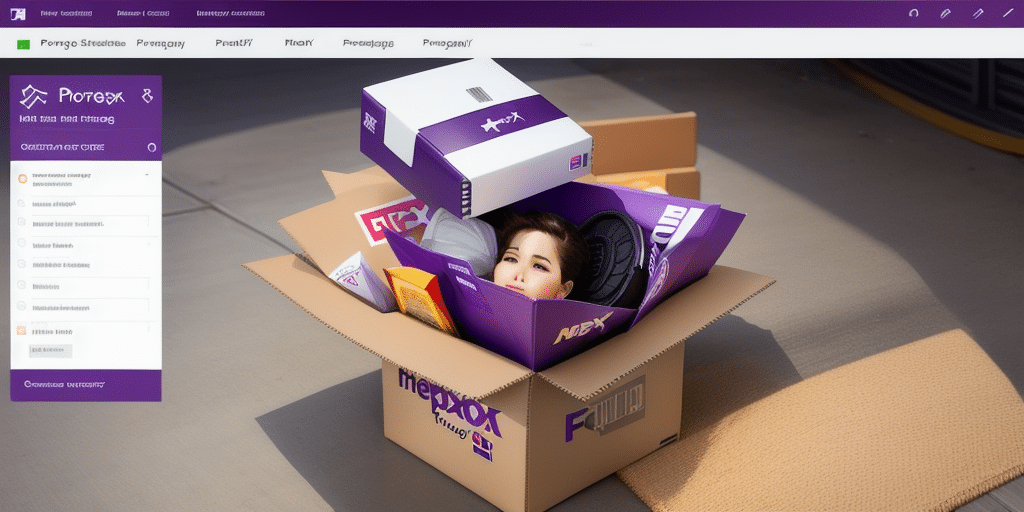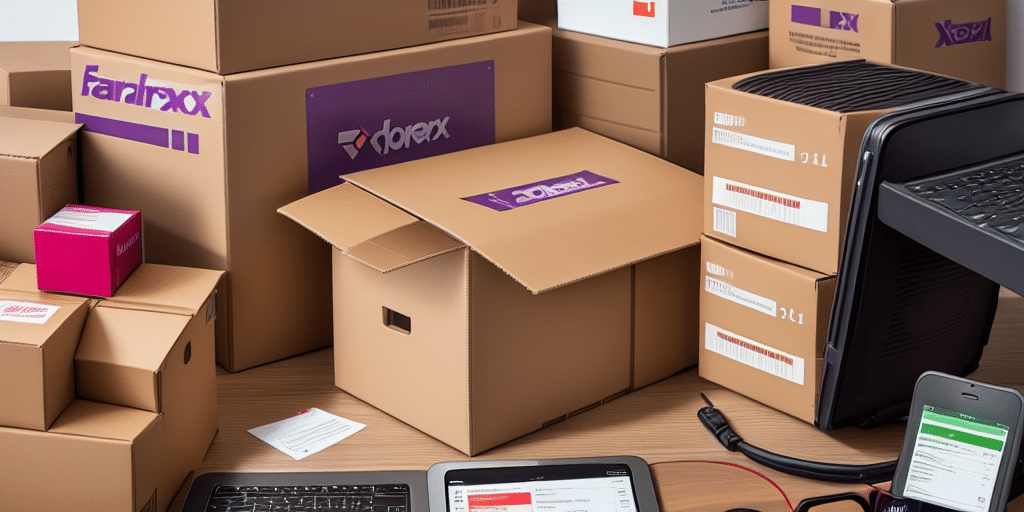Understanding Proxy Servers for FedEx Ship Manager
If you're an eCommerce business owner or someone who regularly uses FedEx Ship Manager, you may have come across the term proxy server. In simple terms, a proxy server is an intermediary server that acts as a bridge between your device and the internet. It can help improve your internet connection speed, protect your online privacy, and enhance your overall online experience. In this article, we will explore in depth what a proxy server is and how it integrates with FedEx Ship Manager.
Why Do You Need a Proxy Server for FedEx Ship Manager?
One of the primary reasons to use a proxy server with FedEx Ship Manager is to enhance your internet connection speed. A high-quality proxy server can help reduce latency and ping time, resulting in faster load times and a smoother user experience. According to a study by Cloudflare, proxy servers can significantly improve website loading speeds by caching frequently accessed data.
Additionally, a proxy server allows you to access content that may be restricted in your region or access FedEx Ship Manager from locations that might be blocked due to geographic restrictions. This is particularly useful for businesses operating internationally, ensuring uninterrupted access to shipping tools.
Another critical reason for using a proxy server is to enhance your online security. A proxy server acts as a barrier between your computer and the internet, protecting your personal information from potential hackers or cyber-attacks. By masking your IP address and location, it becomes more challenging for third parties to track your online activity, providing peace of mind when handling sensitive information and transactions through FedEx Ship Manager.
The Benefits of Using a Proxy Server for FedEx Ship Manager
Implementing a proxy server with FedEx Ship Manager offers numerous benefits:
- Improved Security and Privacy: By masking your IP address and encrypting your data, a proxy server safeguards your online activities.
- Enhanced Performance: Proxy servers can cache data, reducing the amount of data that needs to be downloaded, which leads to faster load times.
- Geographical Flexibility: Access FedEx Ship Manager from any location by bypassing regional restrictions.
- Control and Monitoring: Manage and monitor internet access for employees, preventing access to malicious or non-productive websites.
According to Cisco, businesses that utilize proxy servers experience a significant reduction in security breaches and improved network performance.
How Does a Proxy Server Work with FedEx Ship Manager?
When you connect to the internet through a proxy server, all your data and website requests are routed through the proxy server before reaching their destination. The proxy server acts as an intermediary by intercepting and re-routing your website requests while masking your IP address in the process. This mechanism allows you to access FedEx Ship Manager with enhanced speed, security, and privacy.
Additionally, using a proxy server helps bypass geographical restrictions that may prevent access to FedEx Ship Manager from certain locations. By making it appear as though you are accessing the website from a different location, the proxy server ensures seamless access to the service, regardless of your physical location.
Types of Proxy Servers Suitable for FedEx Ship Manager
There are several types of proxy servers, each with its unique features:
- HTTP/HTTPS Proxies: Ideal for standard web protocols, suitable for accessing web-based applications like FedEx Ship Manager.
- SOCKS Proxies: Suitable for services that require non-HTTP communication, offering greater flexibility.
- SSL Proxies: Provide encryption for sensitive data, ensuring secure transactions.
It's crucial to select a proxy server that is compatible with FedEx Ship Manager. Some proxy servers may cause issues such as slow performance or errors during the shipping process. Always test the proxy server to ensure it works correctly with FedEx Ship Manager before full implementation.
How to Set Up a Proxy Server for FedEx Ship Manager
Setting up a proxy server for FedEx Ship Manager involves the following steps:
- Choose a Suitable Proxy Server: Select a proxy server that meets your business needs and is compatible with FedEx Ship Manager.
- Configure Proxy Settings: Adjust the proxy settings on your device or browser according to the proxy server’s specifications.
- Test the Connection: Ensure that the proxy server is working correctly by accessing FedEx Ship Manager and verifying performance improvements.
It's important to use proxy servers responsibly and ethically, ensuring compliance with all relevant laws and regulations, especially when handling international shipments.
Common Issues When Using a Proxy Server with FedEx Ship Manager and How to Resolve Them
While proxy servers offer numerous benefits, they can also present challenges:
- Slow Connection Speeds: If the proxy server is overloaded, it may slow down your internet connection. Switching to a different proxy server can often resolve this issue.
- Compatibility Issues: Some proxy servers may not be fully compatible with FedEx Ship Manager, leading to errors during the shipping process. Testing and selecting a compatible proxy server is essential.
- IP Address Blacklisting: Repeated use of the same proxy server can lead to IP blacklisting. Rotating proxy servers can mitigate this risk.
- Package Tracking Issues: Some proxy servers may interfere with package tracking features. Temporarily disabling the proxy server can help identify and resolve tracking issues.
For persistent problems, consulting with your IT department or the proxy server provider can provide additional solutions.
Best Practices for Using a Proxy Server with FedEx Ship Manager
To maximize the benefits of using a proxy server with FedEx Ship Manager, follow these best practices:
- Choose the Right Proxy Server: Ensure that the proxy server meets your security, speed, and compatibility requirements.
- Regularly Update Proxy Settings: Keep your proxy server settings up to date to benefit from the latest security and performance enhancements.
- Monitor Network Traffic: Regularly monitor your network traffic to identify and address any performance bottlenecks or security threats.
- Test Proxy Compatibility: Before fully deploying a proxy server, test it thoroughly with FedEx Ship Manager to ensure seamless integration.
- Maintain Ethical Use: Use proxy servers responsibly, adhering to all legal and regulatory requirements to avoid potential violations.
By adhering to these best practices, you can ensure a secure, efficient, and reliable experience when using FedEx Ship Manager.
In conclusion, implementing a proxy server can significantly enhance your use of FedEx Ship Manager by improving speed, security, and accessibility. By selecting the right proxy server, configuring it correctly, and following best practices, you can optimize your shipping operations and maintain a robust online presence.




















